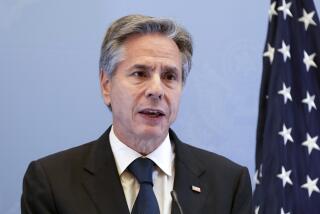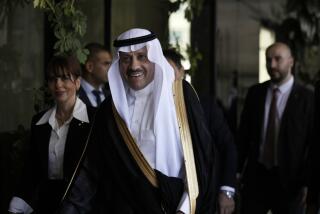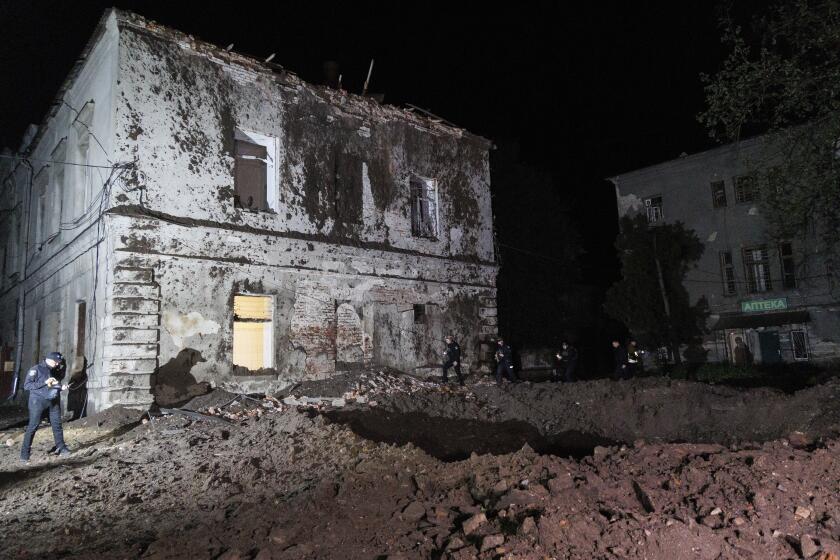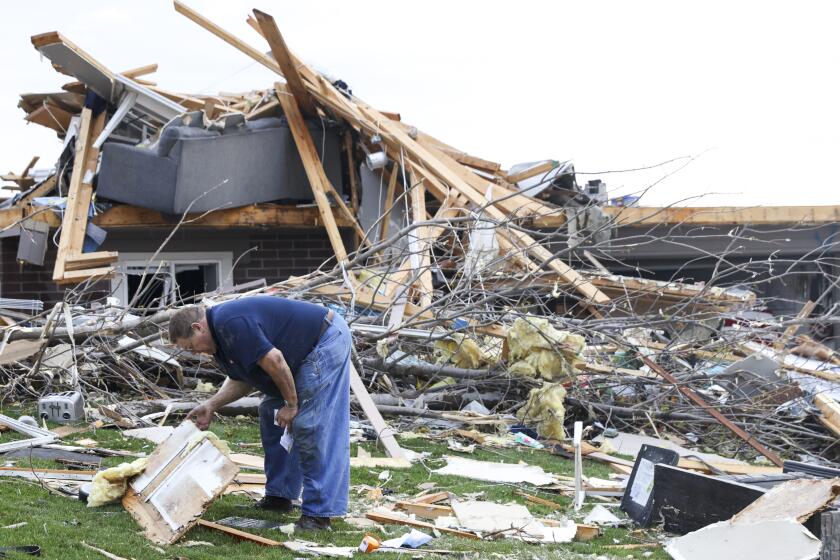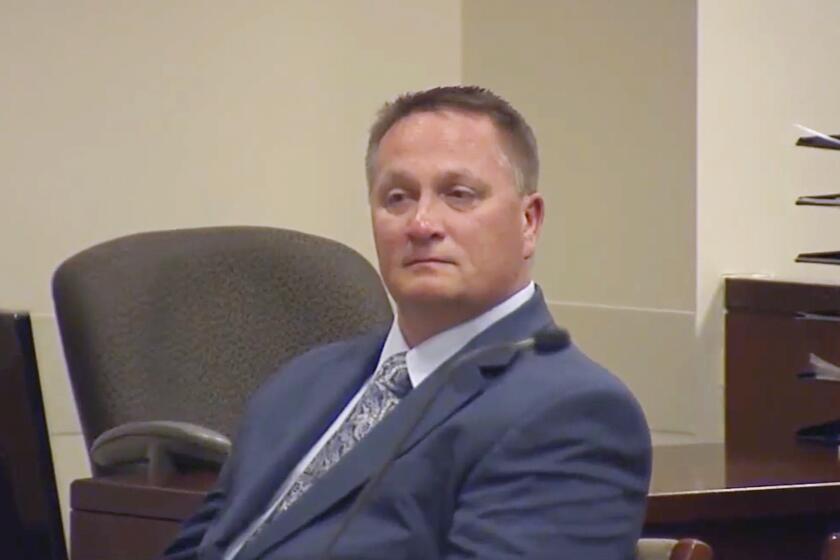Saudi King Salman signals support for Iran nuclear deal
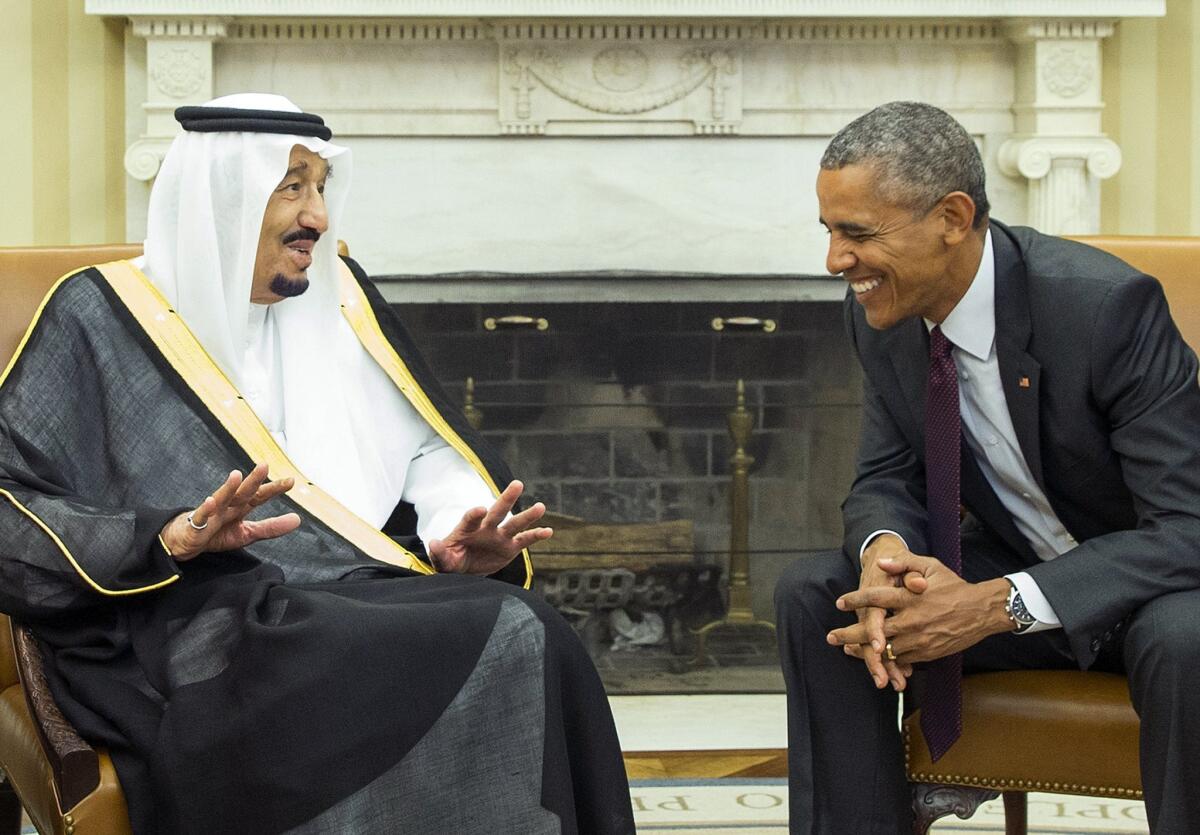
President Obama meets with King Salman of Saudi Arabia in the Oval Office of the White House on Sept. 4, 2015.
Saudi King Salman signaled broad support for the Iran nuclear deal Friday in meetings with President Obama at the White House, and asked U.S. officials for an acceleration of military aid in return.
In almost three hours of meetings that marked his first White House visit as king, Salman heard, and accepted, Obama’s arguments in defense of the agreement, Saudi Foreign Minister Adel Jubeir said afterward.
The king “was satisfied with these assurances,” Jubeir told reporters, saying the king is persuaded that the deal includes “unprecedented safeguards.”
The two leaders believe the deal “will contribute to security and stability in the region,” he said.
The king’s declaration is an important sign of political support for the president. It will allow him to say that the administration has backing from key Middle Eastern allies, except for Israel, in addition to all major world powers.
A signal of dissatisfaction would have been a blow to Obama as Congress prepares for a possible vote on the deal within the next two weeks.
Initially the Saudi Arabian government was deeply unhappy with the nuclear deal, completed July 14, which will give Iran relief from economic sanctions in exchange for its agreement to roll back sensitive nuclear activities for more than a decade. Salman, even more than his predecessor, King Abdullah, has been worried that the administration hasn’t been aggressive enough in checking Iran’s growing influence in the region.
More recently, Riyadh gave signals that it didn’t intend to fight a deal that seemed likely to be implemented in any case.
But the Saudis have been expected to use their cooperation to extract more concessions from Obama on half a dozen issues. They are seeking military hardware to confront Tehran, and are pushing Obama to step up U.S. activities in the region to halt Iran and its proxies in Syria, Iraq, Lebanon and Yemen.
Jubeir said his government is eager to have the United States accelerate delivery of weapons.
Salman alluded to this in a brief appearance with Obama before their meetings. He said the countries’ relationship “must be beneficial, not only economically, but in political and military and defense skills as well.”
Administration officials have been trying to overcome Riyadh’s anxieties about Iran by pledging to provide defense hardware and help in a variety of areas. These include maritime, cyber and missile defense, and assisting in expanding and training Saudi Arabia’s special forces.
A senior administration official told journalists this week that U.S. and Saudi officials have been “rolling up our sleeves with our experts ... to build out a whole range of capabilities.”
Still, U.S. officials are trying to sharply limit America’s direct military involvement in trying to roll back Iran. They emphasized that their goal is to expand Saudi Arabia’s ability to defend itself.
Another top issue in the talks was the Saudi-led military campaign against Iranian-backed Houthi rebels in Yemen.
U.S. officials have provided intelligence and logistics support for the campaign since it began. But even as they have stepped up support for the effort, they have grown increasingly worried about the civilian casualty toll, which they fear could stimulate the growth of radical groups in the country.
Obama, before meeting with Salman, said he believed the Saudis shared a concern about restoring a Yemeni government that is inclusive and can ease the humanitarian crisis.
A senior administration official told reporters the Saudis share the U.S. view that “there’s no military solution to the crisis.”
Yet, in recent weeks, the Saudi-led military coalition has been gaining ground in the country, and there is wide speculation that it
may mount an offensive to retake the capital of Sana this fall.
The Saudis have also been pressing the administration to expand its military help in Yemen.
Before the meeting, the U.S. official said the issue of energy — long the central pillar of the U.S.-Saudi relationship — would be discussed only in a “routine” manner.
But this issue, too, has become a touchy one between the countries. The Saudis have been keeping oil production high to drive down prices, in part to damage the U.S. shale gas companies that are a threatening new competitor to Mideast producers.
For foreign policy news, follow me at @richtpau
More to Read
Start your day right
Sign up for Essential California for news, features and recommendations from the L.A. Times and beyond in your inbox six days a week.
You may occasionally receive promotional content from the Los Angeles Times.

